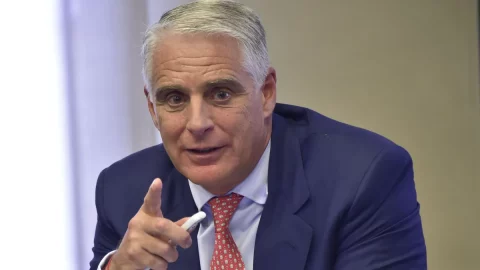Italy will face a long recession, which could only end early next year. According to the Bank of Italy's economic bulletin, with the Btp-Bund spread around 450, GDP should drop by 2% this year and 0,2% next year. The estimates have been revised downwards compared to the early January forecasts.
“The recessionary phase – writes Bankitalia – would extend to the second part of this year, but at a slower pace than in the first two quarters. It would end at the beginning of 2013. Over the next year, the dynamics of the product would remain slightly positive, to then regain strength later”. The cyclical growth “could start on a more robust footing” in 2014.
In 2012 and 2013, Bankitalia explains, “economic activity would continue to be characterized by a marked weakness in domestic demand. The main positive contribution to the dynamics of the product would come from exports. The accumulation of capital would be affected by the still tense conditions of access to credit and by those of the real estate market”.
UNEMPLOYMENT OVER 11% IN 2013
“Employment – says Via Nazionale – would drop by just over 1% this year and remain stationary next year. Against a significant increase in participation in the labor market, already observed in the first part of 2012, the unemployment rate would rise above 11% in 2013”.
CONSUMPTION FALLS, FAMILIES USE SAVINGS
Consumption will contract “by 2,5% this year and by almost 1% next year. Part of consumer spending in the current year would be financed by drawing on savings: the savings rate would fall further on average for 2012-13. Household spending would be held back by the effects of the public accounts rebalancing maneuvers on disposable income, as well as by the uncertainty about the labor market prospects”.
CREDIT COSTS DOWN, BUT LOANS STILL WEAK
“the cost of business loans has gradually decreased since the beginning of the year”. In the spring “signs emerged of an easing of the difficulties in accessing credit” but “improvements remain uncertain and the weakness of the amounts disbursed continues. The credit prospects remain conditioned by the persistence of tensions on the international financial markets and by the unfavorable economic scenario, which is reflected in the demand from businesses and households and in the assessments of intermediaries regarding their creditworthiness”.
INFLATION AT 3% IN 2012, BELOW 2% IN 2013
“inflation measured with the harmonized consumer price index (HIP) would rise to 3% on average this year (from 2,9% in 2011), to then fall below 2% in 2013. The dynamics of prices in the current year would be largely affected by the increases in indirect taxes (by almost one percentage point) and by the increase in crude oil prices at the beginning of the year. The postponement, established in the spending review decree, of the increase in VAT rates originally scheduled for next October contributes to the drop in inflation in 2013”.
WITH SAVINGS SPENDING REVIEW REDUCE TAXES AT WORK
"The spending review activity, together with the fight against tax evasion, can allow for the reduction of tax rates, especially on labour, favoring the recovery".





